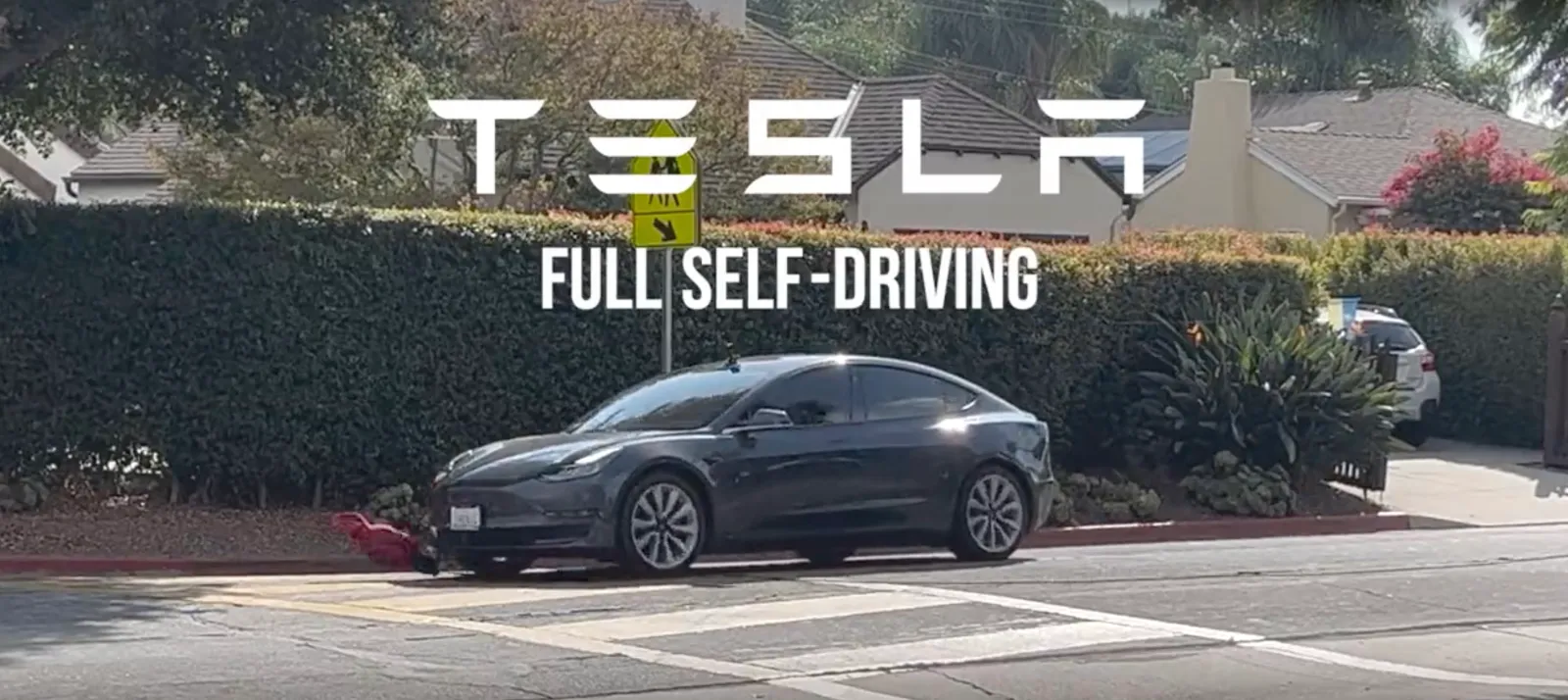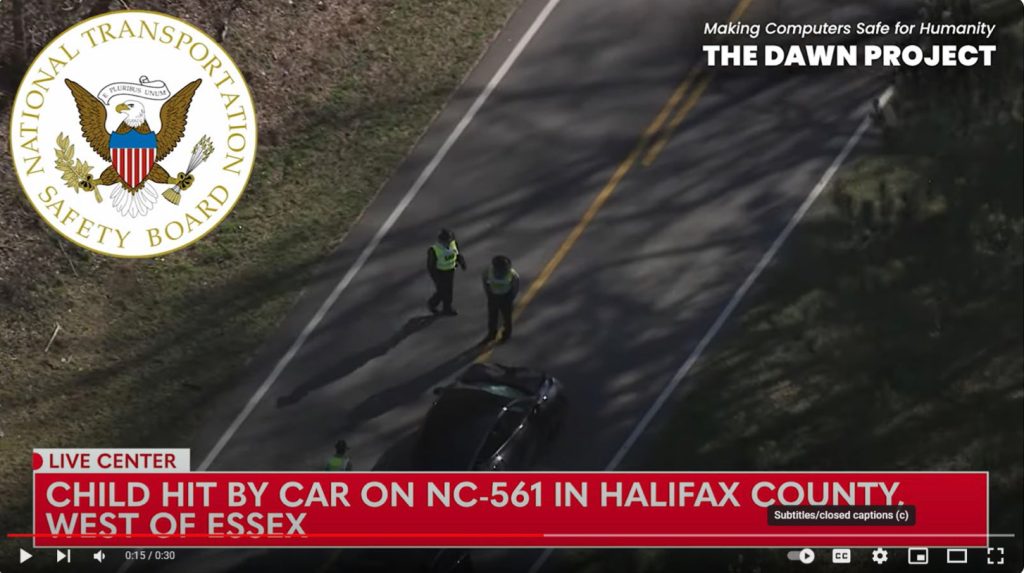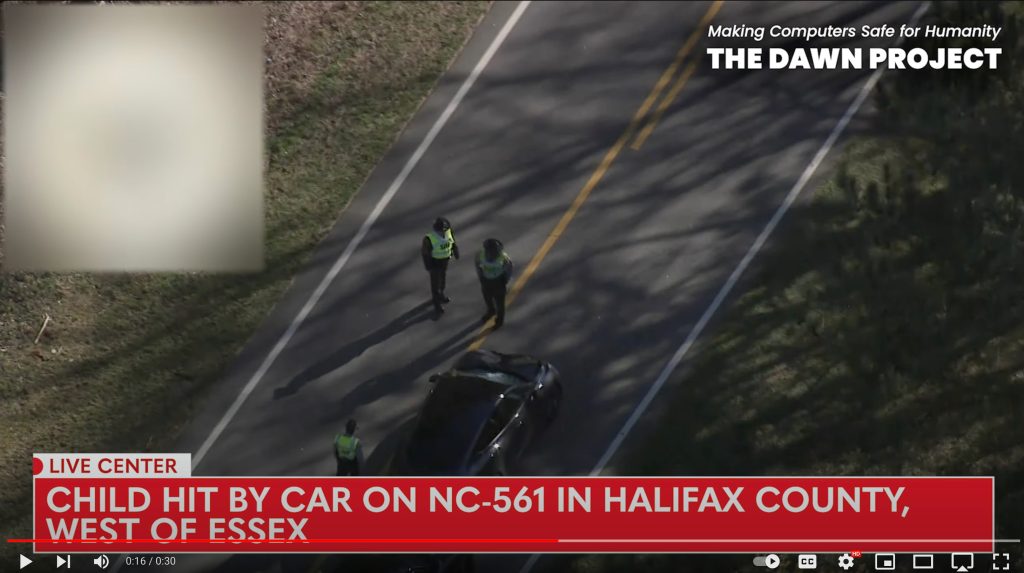[ad_1]

The Dawn Project, a group that runs ads attacking Tesla’s full self-driving system, has received a letter from the National Transportation Safety Board (NTSB) demanding that it cease using its logo in advertising, which Dawn Project did in contravention of US federal law in its Super Bowl ad aired this weekend.
The Dawn Project is run by Dan O’Dowd, CEO of a software company which sells automotive driving software services, putting it in competition with Tesla. The Dawn Project itself is founded and funded by O’Dowd via his significant personal wealth (his net wealth isn’t public, but is estimated to be around a billion dollars), with the main goal of attacking Tesla’s Full Self-Driving system (FSD), claiming it to be unsafe.
The group has placed several advertisements online making dubious claims about FSD, posing as a public interest group solely interested in “making computers safe for humanity.” Its campaign has drawn a cease-and-desist letter from Tesla.
Dan O’Dowd also ran for California’s US Senate seat in 2022, with a campaign that largely focused on this one issue.
Both this year and last, the group ran an advertisement in the Super Bowl. This year’s ad cost $552,000 according to the Dawn Project, much less than the well-publicized ~$7 million price for a typical Super Bowl ad slot, because it ran as a regional ad and was not seen in all markets where the game aired.
The group posted two ads on its YouTube channel, one claiming that Tesla did not respond after it warned Tesla of FSD’s inability to stop for school buses, which it claims led to an accident that put a child into the hospital in 2023, after its first Super Bowl ad aired.
That incident is still being investigated, and it is not known yet whether the vehicle was operating on FSD. It has however been widely observed that FSD does not stop for school buses, so it is plausible that the incident could have happened if both the car and its driver did not notice the school bus stop sign.
However, in contradiction to the name Tesla has given to the system, FSD is not actually equipped to be used for full self-driving tasks, but rather as a driver aid which requires the driver to be attentive at all times. Despite the misleading name, FSD is still classed as a “level 2” autonomous system, like the systems on many other cars today, where the driver still has responsibility for everything the vehicle does.
Dawn Project violated federal law in its ad
The second ad is where NTSB’s letter comes in. In it, Dawn Project claims that Tesla shirks liability for autopilot claims with a note in the owner’s manual saying that it should only be activated on highways.
In doing so, it used footage from various Tesla crashes, with the logo of the NTSB overlaid in the corner of the ad. See a screenshot, provided by the NTSB in its letter:

In NTSB’s letter, it says that this use of its seal violates federal law:
RE: Unauthorized Use of NTSB’s Official Seal in Super Bowl Commercial
Dear Sir/Ma’am:
It has come to our attention that your second Super Bowl LVIII commercial
airing on February 11, 2024, prominently – and unlawfully – displays the official seal of the National Transportation Safety Board (NTSB). In addition to its public airing, the commercial has been posted to your webpage, dawnproject.com, and to your YouTube page. A screenshot of the commercial in question is attached.By federal law, the NTSB is authorized a judicially recognized seal. 49 U.S.C. § 1111(j). Use of the NTSB Seal outside of the NTSB is prohibited without the prior written approval of the NTSB. 49 C.F.R. § 803.5. Due to the nature of our work and the need to be unambiguously independent from commercial interests, we strive to protect the international reputation of the NTSB by preventing unapproved use of our
seal.Contrary to Federal law, you did not obtain, and the NTSB did not grant,
permission to use the NTSB Seal in your Super Bowl LVIII commercial or on any other materials. Moreover, your unauthorized use of the NTSB’s seal spuriously implies endorsement of your company and/or message by the NTSB. Accordingly, the NTSB demands that you cease any further unsanctioned use of the NTSB Seal, and that the NTSB’s Seal be immediately removed from your website and YouTube page, as well as any further airings of the offending commercial. We further request that you notify us in writing when all changes have been made.
The Dawn Project seems to have quickly complied with the letter, as its youtube video now has a large, conspicuous blur visible for roughly half of its runtime, obviously covering up the illicit use of NTSB’s logo:

However, despite the quick followup by the Dawn Project, the ad still aired with the logo in the first place, and in front of a lot of eyeballs in what was apparently the most-viewed American television event since the moon landing.
Electrek’s Take
There are no heroes here.
It seems that Dan O’Dowd has repeatedly stretched the truth in his attacks on FSD, and that both his business and potential political aspirations are benefitted by the publicity he gets from those attacks.
That latter point doesn’t mean he’s wrong all on its own, as it’s totally fine for people to align their personal interests with what they believe to be the greater interests of humanity. But being so laser-focused on attacking one particular system, and doing so in inaccurate ways, doesn’t really help O’Dowd’s case that this is being done in the public interest.
The tone of the Dawn Project’s advocacy does not serve to improve FSD or similar partial-automation system, but rather to fearmonger about them, and we don’t think that’s helpful.
But also, Tesla, and in particular its CEO Elon Musk, has repeatedly lied or misled about FSD.
The name itself is misleading, as Tesla cars do not drive themselves, as pointed out above. Tesla calls it “beta” software, and has repeatedly said that these are just steps on the way to actual eventual full self-driving, but we’ve been hearing Elon Musk say that FSD is coming “next year” for a full decade now (and he’s still saying it).
The way that Tesla talks about FSD, and the name itself, has led to a sense of overconfidence in the system, which could lead to people using it in an unintended manner. This was pointed out by the widow of a Tesla employee who died while driving drunk with FSD activated, who says “we were sold a false sense of security.”
And Tesla has broken direct promises with FSD as well. It said in 2016 that every Tesla has the hardware for FSD, but it’s still charging owners for hardware upgrades to enable it. It’s possible that this could happen again in the future, if Tesla finds out that true self-driving tasks are too much for HW3 or HW4.
So there is fault from all parties involved. Tesla’s approach with FSD is pushing the concept of self-driving forward, but the company takes liberties in doing so. However, criticism of the company isn’t served well by taking its own liberties and stretching the truth in response.
There are plenty of valid points to criticize Tesla and FSD on, and if O’Dowd were truly doing this for the public interest, he wouldn’t need to falsify government logos, stage fake tests, or misrepresent real-life events along the way.
FTC: We use income earning auto affiliate links. More.
[ad_2]
Source link
